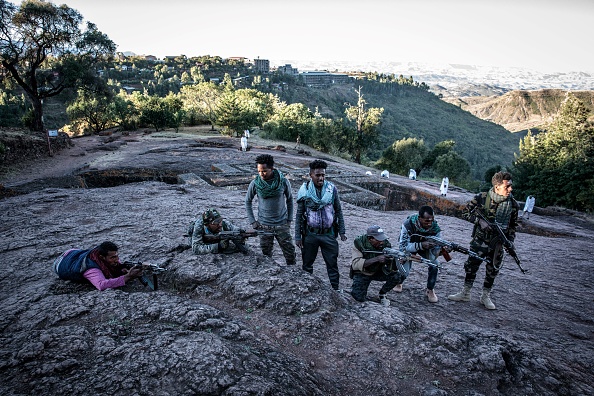Addis Ababa – The Ethiopian government and Tigrayan rebels on Tuesday accused each other of blocking a humanitarian aid convoy carrying emergency supplies for a starving population in the northern region.
On March 24, Prime Minister Abiy Ahmed’s government announced “an indefinite humanitarian truce effective immediately”, saying it hoped to help hasten delivery of emergency aid into the Tigray region, where hundreds of thousands face starvation.
Hours later the rebels agreed to a “cessation of hostilities”, a new turning point in the nearly 17-month war in northern Ethiopia which has left thousands dead.
ALSO READ | Ethiopia declares ‘indefinite humanitarian truce’
But each side has issued demands.
The government has called on the Tigray People’s Liberation Front (TPLF) to “desist from all acts of further aggression and withdraw from areas they have occupied in neighbouring regions” Afar and Amhara.
The rebels have in turn urged the Ethiopian authorities “to go beyond empty promises and take concrete steps to facilitate unfettered humanitarian access to Tigray”.
Since then, however, none of the aid trucks currently waiting in Semera, the capital of Afar, has reached Tigray, where no aid has arrived by road since December 15.
‘False claims’
In a statement issued on Tuesday, the government assured that it “has been using all available means to rescue its citizens in the Tigray region but has not been able to secure the cooperation of the other party”.
A convoy of 43 trucks of food aid, authorised to the UN World Food Programme (WFP) has not been able to enter the Tigray region “due to the closure of Abala Road by TPLF militants,” the statement added.
Earlier Tuesday, as it has been doing daily, the TPLF rebels reiterated that no humanitarian aid has arrived in Tigray, while denouncing the “false claims” of the Ethiopian authorities and demanding that the “unimpeded delivery of humanitarian aid be separated from political issues”.
The attempted humanitarian truce in north #Ethiopia was intended to allow for delivering humanitarian aid to #Tigray. But #TPLF forces resumed their bombardment of #Afar when trucks started to depart from #Samara. #WithdrawFromAfar pic.twitter.com/cGVvl3gto8
— Qali Qarramis (@QQarramis) March 29, 2022
ALSO READ | Ethiopian forces burned Tigrayan man alive, rights body says
On Saturday, the rebels accused the government of “peddling fictitious stories” in claiming that the TPLF was blocking the delivery of aid to Tigray.
Four days since “humanitarian truce” declared in Ethiopia no aid has reached Tigray and patience is wearing thin.
Tigray government appeals to world to pressure Addis to allow humanitarian access. pic.twitter.com/J95Xq27vcc
— Rashid Abdi (@RAbdiAnalyst) March 29, 2022
The situation on the ground in Afar or Tigray is difficult to verify independently and humanitarian organisations have not commented on the situation of the aid convoys since the truce.
The WFP estimated in January that 4.6 million people in Tigray, from a population of around six million, were “food insecure”, with two million of those suffering from “extreme food shortages”.
The UN food agency had welcomed the truce, and said it was “on standby to deliver humanitarian assistance at scale to affected populations across northern Ethiopia”.
“Our teams, humanitarian supplies and trucks are ready to deliver as soon as safe and unrestricted access is guaranteed by all parties,” it said.
Since mid-February, humanitarian operations in Tigray, where more than 400 000 people have been displaced by the conflict, have been virtually halted by local shortages of fuel, food and cash, according to the UN.
ALSO READ | A truce in Ethiopia – does it make peace any more likely?
The conflict erupted when Abiy sent troops into Tigray to topple the TPLF, the region’s former ruling party, saying the move came in response to rebel attacks on army camps.
Fighting has dragged on, triggering the humanitarian crisis, as accounts have emerged of massacres and mass rapes, with both sides accused of human rights violations.
Follow African Insider on Facebook, Twitter and Instagram
Source: AFP
Picture: Getty Images
For more African news, visit Africaninsider.com


